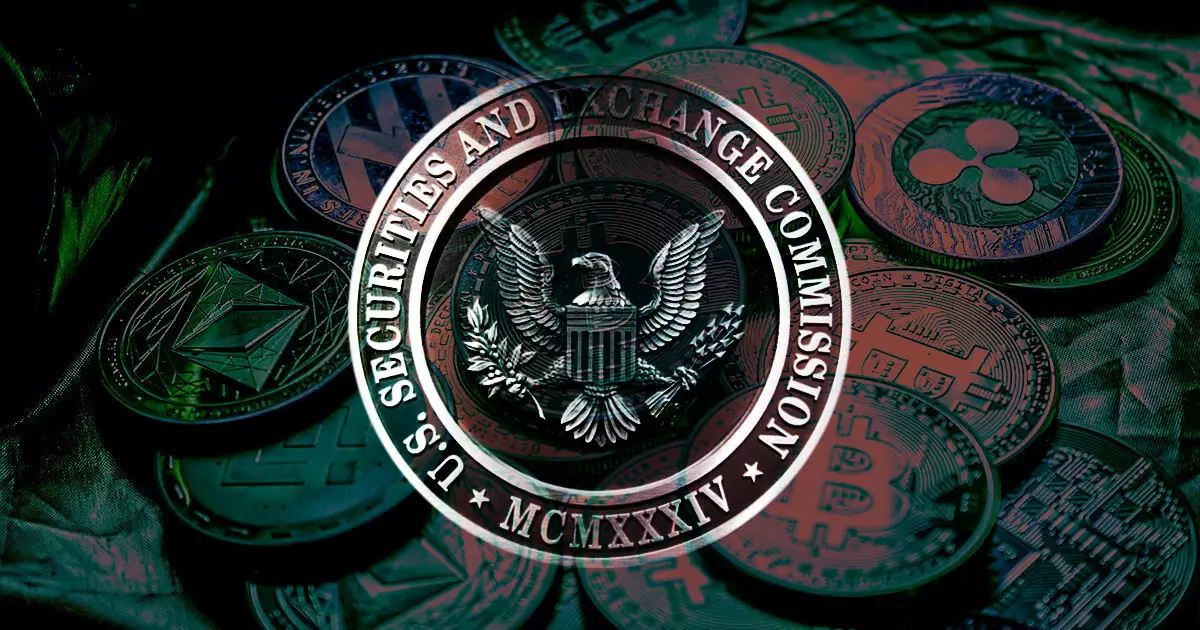Amidst the tumultuous world of cryptocurrency, regulatory bodies are now finding themselves at a crossroads, grappling with the nuances of digital assets. One of the most notable developments in this regard is the amended complaint filed by the U.S. Securities and Exchange Commission (SEC) against Binance, one of the largest cryptocurrency exchanges globally. The new complaint sheds light on the complexities surrounding the definition of what constitutes a security in the crypto space and serves as a critical point of discussion for regulators, industry players, and legal analysts alike.
Details of the Amended Complaint
The SEC’s updated filing, which was approved earlier this morning, reflects significant procedural updates and legal modifications to the agency’s original complaint. By invoking Federal Rule of Civil Procedure 15(a)(2), the SEC has introduced a memorandum to explain its reasons for the amendments. The inclusion of a proposed amended complaint, alongside a redline version highlighting alterations, suggests a shift in the agency’s approach or strategy in addressing the allegations against Binance.
This amended complaint is not merely a procedural formality; it indicates that the SEC is keen on reinforcing its legal stance. With Binance and its co-defendants required to respond by October 11, the clock is ticking on a pivotal moment for this high-profile case. While the amendment aims to clarify aspects of the SEC’s original allegations, it also raises critical questions about the agency’s overarching regulatory framework concerning digital assets.
Reactions from Industry Stakeholders
The legal community’s reactions have been resounding, particularly from factions critical of the SEC’s methods and messaging. Paul Grewal, the Chief Legal Officer at Coinbase, took to social media to highlight his concerns regarding the SEC’s claim that tokens are securities. His critique focuses on the apparent contradiction between the agency’s statements and its previous actions, suggesting that the SEC’s behavior might mislead the court and the broader public regarding the agency’s views on cryptocurrencies.
Grewal’s specific mention of Footnote 6 from the amended complaint showcases a growing sentiment within the industry—that regulatory clarity is sorely lacking. Additionally, his remarks concerning Ethereum transactions signal a profound skepticism regarding the SEC’s uneven regulatory approach. Why certain crypto assets, like Ethereum, appear to elude the agency’s scrutiny raises alarms about selective enforcement and the consistency of regulatory guidelines.
The ongoing scrutiny of the SEC’s actions illustrates the pressing need for regulatory clarity in the rapidly evolving cryptocurrency market. Critics posit that when enforcement actions become the primary means of regulation, they often lead to uncertainty among industry participants about what constitutes compliance. This blurred line can stifle innovation and deter investment in a sector that thrives on clarity and confidence.
Binance has maintained a firm stance against the SEC’s allegations, asserting its commitment to operating within the confines of the law. The platform has insisted that it has continuously cooperated with regulators, indicating a willingness to engage in constructive dialogue. This position, however, does little to mitigate the pressure mounting from scrutiny over how securities laws apply to digital assets.
As the deadline approaches for Binance to respond, the implications of this case extend beyond the immediate comments from industry stakeholders. The regulatory landscape for cryptocurrencies is facing an unprecedented evolution, especially in light of the upcoming U.S. elections. Political candidates are beginning to grapple with how digital assets should be treated under existing laws, and the outcomes may significantly alter the regulatory framework that governs the sector.
Calls for definitive guidelines, rather than reactive enforcement, are becoming increasingly prevalent. As stakeholders and industry advocates push for more transparency, the SEC’s strategy in navigating this complex realm will come under intense scrutiny. Ultimately, the SEC’s amended complaint against Binance may serve as a touchstone for the future of cryptocurrency regulation in the United States, highlighting the urgent need for clear, actionable guidance that benefits both regulators and industry participants alike.
Conclusion: The Path Forward
The SEC’s amended complaint against Binance is a critical juncture in the ongoing dialogue surrounding cryptocurrency regulation. As various parties—regulators, industry leaders, and legal experts—navigate this intricate landscape, the demand for clarity and fairness becomes paramount. Whether through expanded regulatory frameworks or refined enforcement strategies, the future of cryptocurrency in the U.S. may well depend on how effectively these dynamics are addressed in the coming months.


Leave a Reply